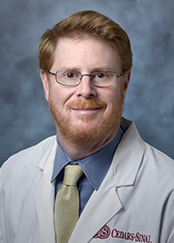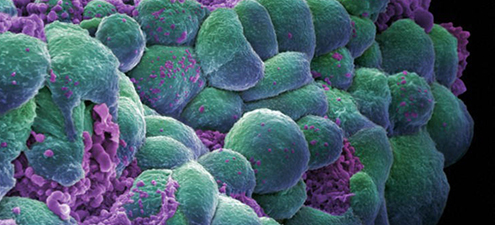Center for Integrated Research in Cancer and Lifestyle
The Center for Integrated Research on Cancer and Lifestyle (CIRCL) was founded in 2015 by urologist Stephen Freedland, MD, after the results of his prostate cancer studies in both people and mice led to the idea that survivors could slow the progression of their disease by changing day-to-day decisions around diet and physical activity. Once the science was established with prostate cancer, the natural progression was to understand whether the same principles held true in the context of other cancers, other lifestyle choices and disease prevention. Moreover, other questions remained in terms of the exact mechanisms by which this occurred and how best to integrate the findings with clinical practice.
CIRCL relies on professional participation in three disciplines—epidemiology, basic science and clinical trials—to ensure scientific rigor in its studies. These disciplines work together to generate concepts, data and discussion that challenge and strengthen hypotheses and propel the science forward. CIRCL currently has studies underway investigating pancreatic, brain, breast, liver and prostate cancers.
Epidemiology
The CIRCL team of epidemiologists observes the interactions and correlations between lifestyle patterns, cancer incidence and progression, to develop hypotheses about the role of various lifestyle factors across multiple cancer types. These include lifestyle factors that may influence cancer disparities in minority populations and races. One recent project focused on understanding how inflammation caused by dietary carcinogens may be partly responsible for disproportionally higher prostate cancer incidence and mortality rates in the African American population. Other projects investigate the role of diet and microbiome in development of inflammation often leading to liver cancer, especially among Hispanics.
Basic Science
The CIRCL basic science team investigates the molecular mechanisms by which lifestyle factors, including diet, exercise and stress influence tumor growth. Recent projects include the first in-depth analysis of diet-related prostate tissue inflammatory markers and whether they are modified by race, the impact of obesity on pancreatic cancer development and whether carbohydrate quality, in addition to quantity, affects cancer growth.
Clinical Trials
The CIRCL clinical trials team creates rigorous study protocols, including informed consent processes, to elicit well-grounded and practicable results from lifestyle interventions. Study types include safety and feasibility trials, as well as Phase I, Phase II and Phase III trials. Clinical trials in progress include a study of the safety and feasibility of the ketogenic diet in glioblastoma patients, a Phase II trial on carbohydrate restriction on prostate cancer tumors and the role of weight loss in breast cancer.
To support the symbiotic relationship between CIRCL divisions, Freedland has assembled a multidisciplinary team that includes epidemiologists, dietitians, exercise physiologists, translational scientists, basic scientists, clinical researchers, clinicians, statisticians and public health professionals, all of whom bring their individual specialties to the common purpose of empowering people to make better lifestyle choices that lead to better cancer outcomes.
Why Cancer and Lifestyle?
Think getting cancer is the result of bad genes or bad luck? Discover the true risks and how much you may control.
Discovering How Lifestyle Can Influence Cancer Cell Growth
Researchers focus on identifying the molecular mechanisms that influence cancer growth for better prevention and treatments.
Director

It is clear that genes load the gun but lifestyle pulls the trigger. Now we just need to figure out how to un-pull the trigger.
Stephen J. Freedland, MD
Warschaw Robertson Law Families Chair in Prostate Cancer
Director, Center for Integrated Research in Cancer and Lifestyle
Co-Director, Cancer Genetics and Prevention Program
Associate Director, Faculty Development Samuel Oschin Comprehensive Cancer Institute
Professor, Surgery

Lifestyle and Cancer: Understanding the Connection
Center for Integrated Research in Cancer and Lifestyle researchers are working to understand the connections between lifestyle and cancer.

Limiting Asparagine Prevents Cancer Spread
According to a new multicenter study, a single protein building block commonly found in food (asparagine) may hold a key to preventing the spread of an often-deadly type of breast cancer.
For Patients
Have Questions or Need Help?
Contact us if you have questions, or wish to learn more about integrated research in cancer and lifestyle research at Cedars-Sinai.
8631 W. Third St.
Fourth Floor, Suite 430E
Los Angeles, CA 90048
